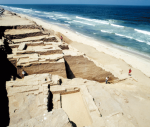You are here
Cabinet endorses new statute under Decentralisation Law
By JT - Nov 17,2016 - Last updated at Nov 17,2016
AMMAN — The Council of Ministers on Thursday approved a by-law that regulates the work of the governorate councils and identifies the procedures of its meetings and internal elections, the Jordan News Agency, Petra, reported.
The by-law is part of a series of regulatory pieces issued under the Decentralisation Law.
In the Letter of Designation to the first government of Prime Minister Hani Mulki in May, His Majesty King Abdullah mandated the Cabinet to issue all the necessary by-laws and instructions to implement the Decentralisation Law, including making the necessary arrangements to hold the elections of the governorate councils next year.
The new regulations stipulate that the governorate council takes its decision through a majority public vote and set rules for the management of the body’s internal affairs and the formation of its committees, their tasks and election mechanism.
Under the by-law, the governor summons the council to hold its first meeting within no more than 30 days from the day the results of the governorate councils elections are published in the Official Gazette, Petra reported, adding that the meeting should be headed by the eldest member, while the president of the council is elected through secret ballot by the members. The same procedure applies to the vice president and the president’s assistant.
Also under the regulations, the council holds its regular session at least once a month by an invitation from the president or, in case of his or her absence, the deputy.
The council is allowed to hold a meeting upon the request of a third of its members to discuss a certain issue, and the meetings are always public unless the council decides otherwise.
In the first meeting, the council elects the permanent committees; financial, economic, development, tourism, agriculture, water, energy, mineral wealth, education, health, public works and local community committees.
The permanent committees comprise at least four members and no more than seven, for a term of two years.
Related Articles
AMMAN — The date for conducting the municipal and governorate council elections will be set within a month, but preparations to hold them ar
The draft by-law governing the decentralisation of governorate councils, which has been endorsed by the Cabinet recently, replaces the existing executive and advisory boards working at the level of governorate, a senior official said.
AMMAN — The Cabinet on Sunday approved the mandating reasons for a draft by-law amending the by-law of electoral districts of governorate co
















